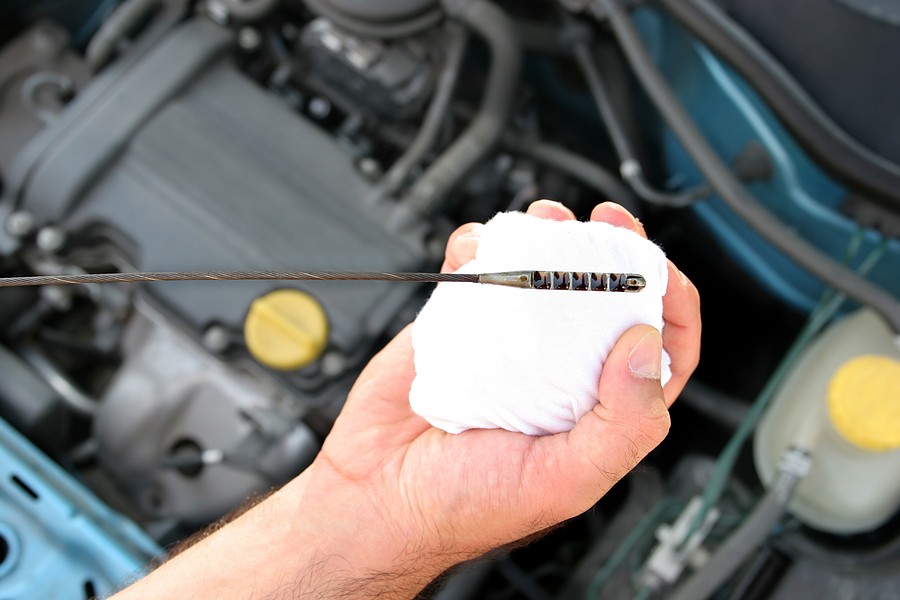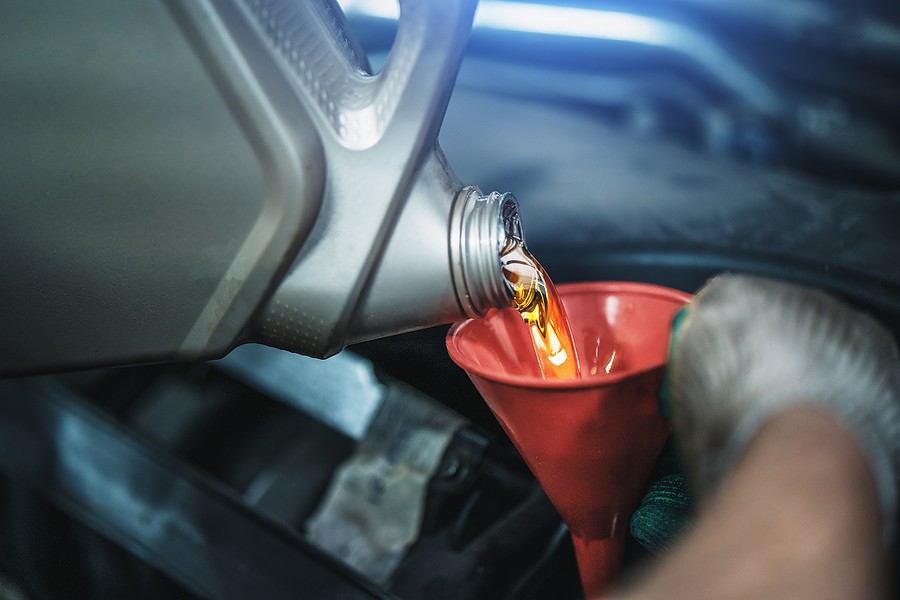If you're wondering, does motor oil freezes, the short answer is that motor oil is extremely unlikely to freeze unless you are living in an area that has very harsh weather conditions.
Motor oil is one of the most critical fluids in your vehicle. It is responsible for lubricating the internal components in your engine and preventing internal friction that results in overheating.
It is critical for you as a driver to maintain the motor oil quality and quantity and never ignore it because it can lead to significant problems that could cost you thousands of dollars, if not the entire vehicle.
Interestingly, some drivers wonder whether motor oil freezes, especially if they live in areas with much snow and other low-temperature conditions.
This article helps you answer the question, does motor oil freeze? It also highlights some of the freezing points for different types of motor oils depending on what you're using to help you make an informed decision about which oil to use in which temperature conditions.

What is motor oil, and what does it do?
Before we dive into the details about does motor oil freezes, it is critical that we get a general understanding of the motor oil and what it does in your vehicle.
If you're driving a vehicle equipped with a combustion system, the engine will produce much heat as it produces the energy needed for moving the vehicle. It also has lots of internal moving components that interact with each other. These components are metal and can create much friction resulting in more Heat.
The last thing you want to do is to continuously have an overheating engine because this means thousands of dollars on repair, and it also means that your vehicle might fail in no time!
Thanks to the motor oil responsible for lubricating the internal medical components and preventing excess temperature that could be produced because of friction. When the internal moving components are lubricated, there is a very limited chance for them to create friction; therefore, the temperature will not be produced.
Remember that depending on the motor oil quantity and quality, your engine might be partially lubricated, and you might get to conditions where you deal with engine overheating problems.

Does motor oil freeze?
Considering the importance of motor oil, many of our readers who live in cold areas reach out to us wondering whether motor oil freezes or not. It is critical to understand this information because if motor oil freezes, you need to be proactive about the problem and take some action.
However, the good news is that it's unlikely for motor oil to freeze unless you live in extremely harsh climates. In that case, you might get to a condition where your motor oil freezes.
To help you better understand the answer to this question, you need to know the freezing point depending on the motor oil type. Typically, motor oil is expected to freeze between – 107 and – 40 Celsius. Note that this is an extremely low temperature if you compare it to the freezing temperature of the water, which is 0 Celsius.
Keep in mind that the freezing point for motor oil depends heavily on the purity of this oil. For example, if the oil's not clean or has some contamination, you might deal with how much earlier stages your motor oil freezes before reaching the optimum – 107 silicious to freeze.

How do people measure the oil freezing point?
In the automobile world, there are two common methods for measuring the freezing points of your motor oil. The first thing is using the oil thickness approach, which determines how much the oil takes to freeze based on how thick this oil is. On the other hand, some people use the cloud point, which puts some streaks on oil as it gets close to the freezing temperature.
You don't necessarily need to know how to measure the freezing point of the oil because it's typically available out there, and it could be listed in the detailed information about the oil on the bottle. In other words, knowing that there are some methods for measuring the freezing point is important. Still, it doesn't necessarily mean that you have to understand each method’s details because you'll never need it unless you’re a specialist interested in doing some research and other details.

What happens if motor oil freezes?
As we indicated earlier, it takes a very low temperature to get your motor oil to freeze. However, when the motor oil approaches the freezing temperature, it loses the characteristics that allow it to flow. In other words, this oil will not reach the different components around your engine; therefore, your engine will not receive the lubrication required, causing significant problems.
That's why the last thing you want to do is to get your motor oil to reach the fusing point. If you're planning to move or drive in extremely cold areas, it is critical that you follow recommendations from automotive experts about how to prevent motor oil from freezing.

Can motor oil freeze solid?
According to automotive experts, there is no way for motor oil to freeze to the point where it is solid. In other words, no location on earth is as cold as – 107 unless you go to locations where there is no life.
Suppose you're doing a special exploration or investigation and expect yourself to be at temperatures where it reaches – 107 Celsius. In that case, the motor oil might become more like a brittle solid state, but it's not necessarily a completely solid state.

Motor oil freezing point by motor oil type
We mentioned earlier that every water oil has its characteristics, and based on that, it will still have its freezing point, but they are pretty close. Let's look at the freezing point for all motor oils, including synthetic and conventional oils.
1. Synthetic oil freezing point
Most of us know synthetic oil is better than conventional oil in many ways, assuming it's compatible with your vehicle. However, that's the same theory applied to the freezing point?
Automotive experts indicated that synthetic oil still works aspirator approaches – 20 Celsius. However, once you reach – 50 degrees Celsius, you'll notice that the synthetic oil viscosity will change, and you'll notice some reduction in the main characteristics of this oil.
Since synthetic oil is made of crude oil, it is also important to understand when will this crude oil stop flowing. Experts mentioned that crude oil flows and stops at around – 40 Fahrenheit.
As the temperature drops below these thresholds, you might notice that synthetic oil is no longer good. You might need to look into other ways to prevent additional reduction in temperature.
2. Conventional oil freezing point
Experts showed that conventional oil contains specific wax that allows it to become thick at colder temperatures. Therefore, conventional oil becomes more resistant to flow and less effective as temperature approaches about – 20 Celsius.

How to keep the car warm when the temperature is low?
One of the best ways to prevent your oil from reaching the freezing point is to continue keeping your vehicle warm. There are many recommendations by automotive experts, which includes:
- Maintain the engine and prevent any problems
- Inspect that you have the right motor oil depending on your vehicle's owner's manual
- Ensure that you have enough motor oil in the tank
- Consider a specific type of motor oil if you're planning to drive in colder areas

How to warm up the car fast when it's cold in the morning?
As the winter season approaches, we will return to the situations where we need to warm up our vehicles and ensure they're ready for our daily errands. However, is there a way that we can warm up the vehicle fast without needing to wait for a long time? Let's see what automotive experts recommend:
1. Use the proper oil
You first want to ensure that your vehicle follows the recommendations in your vehicle’s owner’s manual. In other words, you want to ensure that if your manual requires synthetic oil, don't go with a lower quality one to save money because this will not help you on colder days.
2. Choose your parking area
During the summer season, it should be fine to park your vehicle outside. However, as winter approaches, it is critical that you choose your parking location and plan to park your vehicle inside, for example, or closer to shelters to avoid snow and ice.
3. Prevent stressing the engine
If you're starting the vehicle, it's critical that you ensure that all the electrical devices are turned off so you don't stress out the engine. In other words, ensure that the radio, the lights, and anything that's not needed are all turned off. This way, your engine temperature, and energy will be focused on getting your vehicle going on your next trip.
4. Do not leave your car without driving
As COVID-19 hit, many of us started working from home, and many people are still working from home now. Therefore, one of the best things you could do to help your vehicle is to prevent leaving it sitting idle for a long time. Try taking your vehicle for a ride for at least 30 minutes every week.
This way, if you're planning to turn on the car in the early morning, it won't give you a hard time because of a problem with the battery or any other issues related to the fluids not circulating properly.
5. Avoid shorter trips
Finally, if you want to keep your vehicle in good condition and need help starting the car in the cold morning, it is critical that you do not continuously take your vehicle for shorter trips. More than shorter trips are needed to use the entire energy of your engine fully and to charge the different components fully.
Experts told a lot of negative consequences of shorter trips, not only to early starts in the morning but also to the overall health of your vehicle. Thus, it is critical that you avoid them as much as you can and try combining your trips whenever possible.

Does motor oil freeze? Final thoughts
In any vehicle equipped with a combustion system, the engine gets hot. A hot engine could mean a lot of different things and understanding how long it takes for the engine to cool down is very important for you as a driver to keep up with your vehicle and pinpoint any risky situations.
This article walks you through all you need to know to help you answer the question, how long does it take for a car to cool down? It also provided some highlights about other factors that could impact the cooling down time for your vehicle. Finally, it provided you with some recommendations on what to do if your car overheats while you're driving.
Note that some cars might have persistent overheating problems, which could be an issue with the vehicle itself. In that case, it could be perfect timing for you to sell this vehicle and buy a better one.
Are you looking for someone to buy your car, considering its overheating problems? Why don't you reach out to cash cars buyer today?
Cash Cars Buyer is one of the top-rated car removal companies in the nation that guarantees to pay you the top dollars and provide you with free towing despite your living location around the United States.
Our process is straightforward and doesn't take more than removing your car safely and for the most money.
All it takes you is to:
- Describe your car's type and condition
- Receive our instant free quote
- Accept the quote
- Get your car removed and receive your cash payment on the spot!
To learn more about our process and team, you can call us at (866) 924-4608 or by visiting our home page and clicking on the free instant online offer.



